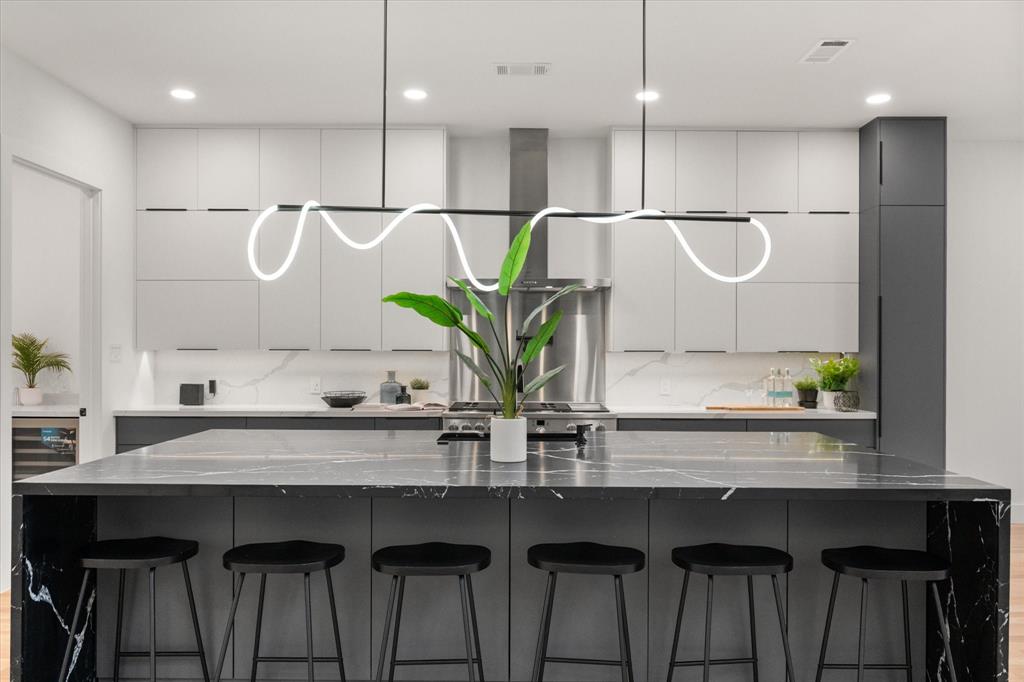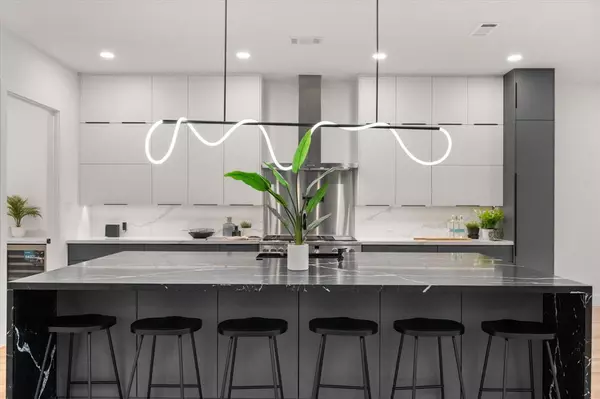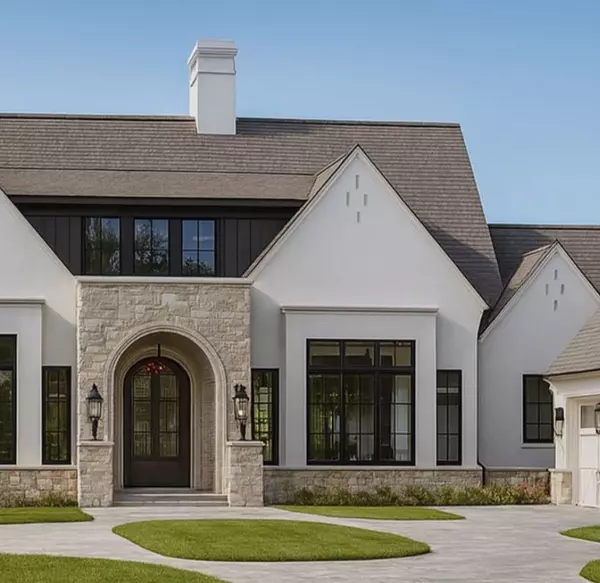Should You Have a Pre-Listing Inspection Before Listing Your Home For Sale in Dallas-Fort Worth?

When preparing to sell your older luxury home in Highland Park or other prestigious DFW neighborhoods, one decision can significantly impact your selling experience: whether to obtain a pre-listing inspection. This proactive approach offers compelling advantages that often outweigh the upfront investment, particularly for established luxury properties.
Understanding Pre-Listing Inspections
A pre-listing inspection is a comprehensive property evaluation conducted before you list your home for sale. Unlike the buyer's inspection that occurs after you're under contract, a pre-listing inspection allows you to identify and address issues on your timeline and terms.
What's Included:
- Structural components (foundation, framing, roof)
- Electrical systems and components
- Plumbing systems (supply, drain, water heater)
- HVAC systems (heating and cooling)
- Interior components (walls, ceilings, floors, doors, windows)
- Exterior elements (siding, trim, grading, drainage)
- Insulation and ventilation
- Built-in appliances
- Fireplaces and chimneys
Investment: $600-$1,500+ for luxury homes depending on size and scope
The Strategic Advantages
1. Control the Narrative
Knowledge is Power Knowing your home's condition before buyers discover it allows you to:
- Address significant issues proactively
- Develop appropriate disclosure strategies
- Price accurately based on actual condition
- Avoid surprises during buyer negotiations
Strategic Repairs With advance knowledge, you can:
- Choose your own contractors rather than accepting buyer's repair demands
- Schedule repairs at your convenience rather than under contract pressure
- Obtain competitive bids rather than emergency pricing
- Ensure quality work that protects your interests
Transparent Disclosure Providing a pre-listing inspection report demonstrates:
- Confidence in your property's condition
- Transparency and good faith
- Professional approach to the transaction
- Reduced likelihood of hidden issues
2. Strengthen Your Negotiating Position
Reduce Buyer Leverage When buyers conduct their own inspection and discover issues:
- They gain negotiating leverage
- Their initial enthusiasm may diminish
- They may request excessive repairs or credits
- Deals can fall apart over inspection issues
With a pre-listing inspection:
- Buyers have less "discovery" ammunition
- Known issues are already addressed or priced accordingly
- Buyer inspection becomes a formality rather than a negotiation tool
- You maintain stronger negotiating position
Justify Your Price A clean inspection report:
- Validates your asking price
- Demonstrates the home has been well-maintained
- Provides documentation of property condition
- Gives buyers confidence in their purchase
3. Prevent Deal Collapse
The Statistics According to industry data:
- Approximately 15-20% of home sales fall through during inspection periods
- Inspection issues are among the top reasons for transaction failure
- Luxury homes often have more complex systems that reveal issues during inspections
Proactive Problem-Solving Addressing issues before listing:
- Reduces likelihood of buyer's remorse
- Prevents last-minute negotiation failures
- Minimizes stress during the transaction
- Keeps your sale timeline on track
4. Accurate Pricing Strategy
Condition-Based Pricing Understanding your home's actual condition allows:
- Appropriate pricing that reflects needed repairs
- Avoids overpricing that leads to market time and eventual reductions
- Prevents underpricing by confirming good condition justifies premium pricing
- Creates realistic expectations for all parties
Investment Decision-Making The inspection helps you decide:
- Which repairs deliver the highest return
- What issues to disclose and price accordingly
- Whether major system replacements are worthwhile before listing
- How to position your property competitively
Specific Benefits for Older Highland Park Homes
Highland Park's historic homes (many built 1920s-1960s) present unique considerations:
Age-Related Systems Issues
Older homes commonly have:
- Outdated electrical systems (insufficient amperage, lack of GROUNDING, old wiring)
- Aging plumbing (galvanized pipes, cast iron drain lines, old fixtures)
- Roof systems at or beyond typical lifespan
- HVAC systems requiring replacement or significant repairs
- Foundation settlement or movement (common in Dallas clay soils)
- Original windows with efficiency issues
The Pre-Listing Advantage: Knowing these issues in advance allows strategic decisions about repairs, replacements, or pricing adjustments before buyers discover them.
Historic Home Considerations
Highland Park's architectural heritage means:
- Some "issues" are characteristic of historic construction
- Buyers may be unfamiliar with older home systems
- Modern building standards don't always apply
- Context and education matter in presenting older homes
A pre-listing inspection with an inspector experienced in historic properties provides:
- Appropriate context for age-related conditions
- Distinction between cosmetic issues and structural concerns
- Reasonable expectations for properties of this era
- Documentation you can share with buyers
Foundation Realities in DFW
Dallas-Fort Worth's expansive clay soils create foundation challenges:
- Minor settlement is common and often not structural
- Cosmetic cracking versus structural issues require expert evaluation
- Foundation repairs can be expensive but not always necessary
- Buyers often overreact to foundation concerns
Pre-Listing Foundation Evaluation: Consider a specialized foundation inspection alongside your general inspection:
- Provides expert assessment of any movement or settlement
- Offers repair recommendations if needed
- Documents that minor issues don't require immediate attention
- Gives you options for addressing concerns before listing
Investment: $300-$600 for specialized foundation inspection
Common Objections and Responses
"I Don't Want to Know About Problems"
This head-in-the-sand approach creates risk:
- Legal disclosure obligations mean ignorance isn't protection
- Buyers will discover issues anyway
- Last-minute discoveries during buyer inspection create maximum stress
- You lose control of the narrative and repair decisions
Better Approach: Know the issues, make informed decisions about addressing them, and maintain control.
"It's Too Expensive"
Pre-listing inspection costs ($600-$1,500) are minimal compared to:
- Potential deal collapse and having to relist
- Accepting lowball offers due to inspection issues
- Emergency repair costs when buyers demand immediate fixes
- Extended carrying costs from deals falling through
- Price reductions from multiple failed negotiations
ROI Perspective: If a pre-listing inspection prevents one failed deal or saves $10,000 in negotiations, the return is substantial.
"Buyers Should Do Their Own Inspection"
Buyers will still conduct their own inspection even if you provide yours. However:
- Your inspection sets the baseline
- Buyer's inspector is less likely to find major surprises
- You've already addressed significant issues
- Buyer's inspection becomes confirmatory rather than adversarial
"I'll Just Price Lower to Account for Unknown Issues"
This approach:
- Leaves money on the table if condition is actually good
- Creates uncertainty for buyers who don't know what they're getting
- Attracts bargain hunters rather than serious luxury buyers
- Suggests lack of confidence in your property
Better Strategy: Know the condition, price accurately, and market confidently.
What to Do with Inspection Findings
Minor Issues (Cosmetic, Low-Cost Repairs)
Examples: GFCI outlets needed, minor caulking, small plumbing leaks, weather stripping
Recommended Action: Fix these items. Cost is minimal and eliminates buyer concerns.
Investment: Usually $500-$2,000 total
Moderate Issues (System Repairs, Component Replacements)
Examples: HVAC repairs, plumbing updates, electrical panel issues, roof repairs
Options:
- Repair Before Listing: Eliminates buyer concerns, strengthens negotiating position
- Obtain Bids and Disclose: Show buyers the documented repair cost, potentially offer credit
- Price Accordingly: Reduce price to reflect repair needs
Decision Factors:
- Cost of repair versus impact on price/negotiations
- Your timeline (do you have time for repairs?)
- Whether repair enhances marketability
- Competitive landscape (are other listings in better condition?)
Major Issues (Significant System Replacements, Structural Repairs)
Examples: Roof replacement, foundation repairs, HVAC replacement, extensive plumbing/electrical work
Strategic Considerations: These discoveries require serious analysis:
Option 1: Complete Repairs Before Listing
- Pros: Removes significant buyer objection, justifies asking price, provides warranty protection
- Cons: Major expense and time investment, may not recoup full cost
Option 2: Price to Reflect Needed Work
- Pros: Avoids upfront expense, lets buyers handle repairs their way
- Cons: Significantly limits buyer pool, impacts financing, reduces sale price substantially
Option 3: Hybrid Approach
- Complete the most critical repairs that impact safety/habitability
- Provide detailed bids for remaining work
- Adjust price moderately to reflect buyer's investment
Decision Framework:
- Severity and safety implications
- Impact on financing (some issues prevent FHA/VA loans)
- Your financial capacity to address repairs
- Current market conditions (buyer's vs. seller's market)
- Time constraints for your sale
Selecting the Right Inspector
Not all inspectors are created equal. For luxury properties, choose inspectors with:
Relevant Experience
- History with luxury homes and high-end systems
- Understanding of older construction methods
- Knowledge of local soil and foundation issues
- Familiarity with common DFW property concerns
Proper Credentials
- Licensed professional inspector (required in Texas)
- Professional association memberships (TREC, InterNACHI, ASHI)
- Errors and omissions insurance
- Continuing education in inspection practices
Communication Skills
- Ability to clearly explain findings
- Distinction between significant issues and minor concerns
- Written reports that are comprehensive yet understandable
- Availability for follow-up questions
Your Agent's Recommendation Experienced luxury agents maintain relationships with quality inspectors who:
- Provide thorough, fair evaluations
- Understand the luxury market context
- Deliver reports that support transactions rather than kill deals
- Have proven track records with similar properties
The Inspection Process
Scheduling Allow 2-4 hours for comprehensive inspection of luxury homes. Larger estates may require longer.
Your Involvement Consider attending the inspection:
- Ask questions about findings
- Understand severity of issues
- Discuss repair options
- Get recommendations for contractors
The Report Expect a detailed written report within 24-48 hours including:
- Description of all findings
- Photographs of issues
- Severity classifications
- Recommendations for repairs or further evaluation
Strategic Use of Inspection Results
Full Disclosure Approach
Provide the complete inspection report to prospective buyers:
Advantages:
- Maximum transparency builds trust
- Demonstrates confidence in property condition
- Reduces liability concerns
- Appeals to sophisticated buyers who value honesty
Considerations:
- Buyers see every minor issue in writing
- Some minor items may be unnecessarily alarming
- Requires comfort with full transparency
Selective Disclosure Approach
Address major issues discovered, but don't automatically provide full report:
Advantages:
- Fulfill legal disclosure obligations without providing exhaustive documentation
- Buyers conduct their own inspection for peace of mind
- Avoids over-focusing on minor items
Considerations:
- Must still disclose material defects legally
- Risk if buyer's inspector finds something yours missed
- May appear less transparent
Best Practice: Consult with your agent and real estate attorney about disclosure requirements and strategies specific to your situation and jurisdiction.
Timing Considerations
Ideal Timeline:
- Conduct pre-listing inspection 4-6 weeks before planned listing date
- Allows time for repairs if you choose to address issues
- Gives flexibility for contractor scheduling
- Permits adequate planning without delaying your sale
Compressed Timeline: If you need to list quickly:
- Still worthwhile to conduct pre-listing inspection
- Focus on identifying deal-killer issues
- Address only the most critical items
- Price appropriately based on findings
Beyond the General Inspection
Consider additional specialized inspections for older luxury homes:
Specialized Foundation Inspection Investment: $300-$600 Recommended for: Any home with visible foundation concerns or age 30+ years
Roof Inspection by Roofing Professional Investment: Often free from roofing companies, $150-$400 for independent inspection Recommended for: Roofs 15+ years old or showing wear
Plumbing Camera Inspection Investment: $200-$500 Recommended for: Older homes with cast iron drain lines or suspected sewer issues
Electrical Panel Evaluation by Licensed Electrician Investment: $100-$300 Recommended for: Homes with Federal Pacific, Zinsco, or other problematic panels
Chimney Inspection Investment: $150-$400 Recommended for: Homes with wood-burning fireplaces that are actively used
Pool and Spa Inspection Investment: $150-$400 Recommended for: Properties with pools, especially with older equipment
The Bottom Line for Highland Park Sellers
For older luxury homes in Highland Park and similar prestigious DFW neighborhoods, pre-listing inspections provide:
✓ Control over timing and approach to repairs ✓ Confidence in your pricing strategy ✓ Protection against deal-killing surprises ✓ Credibility with sophisticated buyers ✓ Peace of Mind throughout the transaction
The investment of $600-$1,500 (plus specialized inspections if needed) is minimal insurance against:
- Failed transactions costing thousands in carrying costs
- Forced price reductions during negotiations
- Legal issues from undisclosed defects
- Stress and uncertainty during the sale process
When Pre-Listing Inspections May Not Be Necessary
- Brand new construction with builder warranties
- Recently renovated homes with new systems throughout
- Properties selling primarily for land value (teardown situations)
- Homes with very recent comprehensive inspections (within 1-2 years) and no known changes
For most established luxury properties, particularly in Highland Park's historic districts, the benefits of pre-listing inspections significantly outweigh the modest investment required.
Considering selling your established Highland Park luxury home? Let's discuss whether a pre-listing inspection makes strategic sense for your property and develop a comprehensive preparation plan to maximize your sale success.
Schedule a Consultation
Curtis Rose
Dallas-Fort Worth Luxury Real Estate Agent
Specializing in Highland Park • Preston Hollow • Luxury Estates
📞 859-358-9304
📧 Curtis@CurtisRoseDFW.com
🌐 www.CurtisRoseDFW.com
📸 www.instagram.com/CurtisRoseRealtor
Categories
Recent Posts











